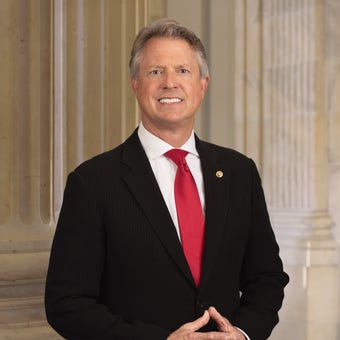Could the Silicon Valley Bank collapse trigger a nationwide run on banks?
Fox News senior political analyst Brit Hume discusses fears in the banking sector and the fallout from the Silicon Valley Bank collapse as on 'Special Report.'
It's not a regulatory issue. It's a bailout.
We've heard the spin from the White House and Treasury Secretary Janet Yellen that taxpayers won't have to pay for Silicon Valley Bank's collapse, but it is inevitable. When the FDIC assesses an extra fee of $25K to $1M for community banks to bailout SVB, local banks will do everything possible to tighten their belts and absorb the additional costs. Still, eventually, those fees will trickle down to its consumers. Sadly, hard-working Americans in small towns across America will pay more to recover money for a bank they've never heard of in Silicon Valley, CA.
But that is not the crux of this issue. The most dangerous part of this bailout is the message this administration is sending depositors, that your money is safer in big banks even when they fail. An overreaction to bad management at the SVB board and a panic by the White House must not take down community banks as collateral damage. Our local banks are the backbone of our communities and the primary funders for Main Street USA and rural America.
The costliest unintended consequence to our community banks is depositors leaving not only due to increased fees but because Secretary Yellen signaled that your deposits are safer in 'Too Big to Fail Banks.'
To encourage these deposits to stay in these community banks and level the playing field, Congress must debate the pros and cons of FDIC protections at a minimum for non-interest-bearing Demand Deposit Accounts. These business accounts are critical to community banks' viability, and the $250-$500K CDs deposits to small-town banks are crucial for lending to locally owned businesses and family farms. Their transfer to 'Too Big to Fail Banks' will only exacerbate the exit of smaller banks that cannot carry the regulatory burdens created by Dodd-Frank.
FLASHBACK: TREASURY SEC. YELLEN DIDN'T BELIEVE SHE'D SEE ANOTHER FINANCIAL CRISIS IN HER LIFETIME
What SVB did was a violation of Banking 101. Banks want to purchase long-term treasuries/bonds when interest rates are high and short-term treasuries/bonds when they are low. SVB did the opposite. As SVB watched interest rates rise, its bond portfolio value decreased. Couple that downswing with a large volume of deposits going out the door, which is not unusual for their VC-heavy customer base, and SVB quickly had a liquidity crisis- a cash flow issue.
Soon after that, the run was underway.
SVB ignored common sense measures. Interest rate risk assessment should be done quarterly by every bank, regardless of its size. Typically, a report on interest rate assessments prepared by an outside third-party expert is presented to the board every quarter - at a minimum. Interest rate risk testing assesses what would happen to the value of your bank if interest rates went up or down one to four percent. Presumably, this exercise was done at SVB and perhaps ignored by SVB's management team and board. Shockingly, the interest rate stress test is not included in the Federal Reserve's evaluation, which is a big mistake and, quite frankly, gross negligence on the Fed's part.
Of course, there is more than just interest rate malfeasance. SVB gave gifts to surprising nonprofits, made green ESG investments, and had management selling off its stock just weeks before the collapse that contributed to this failure. The acceleration rate of the interest rate hikes only exacerbated their faulty financial plan.
CLICK HERE TO GET THE OPINION NEWSLETTER
Let me be clear; this was not a capital issue. The worst thing Congress could do now is throw more regulations at banks. Don't take the bait. Even if SVB had met the capital threshold, repealing S.2155 would not have prevented this reckless bank meltdown. Regulations will not save an irresponsible management team with an incompetent board from running amok.
CLICK HERE TO GET THE FOX NEWS APP
In my personal experience, having served as a community bank board representative for 15 years overseeing the implementation of Dodd-Frank, I saw firsthand how the government's heavy hand drives up costs for local banks.
Government overreach takes bank officers away from customer service and slows down their ability to do the business that nimble small-town banks were once known for. This bailout sends the wrong message. It's crony capitalism. I am standing with our community banks, the backbone of small businesses, that should not be negatively impacted by big government fixes for irresponsible management.












































